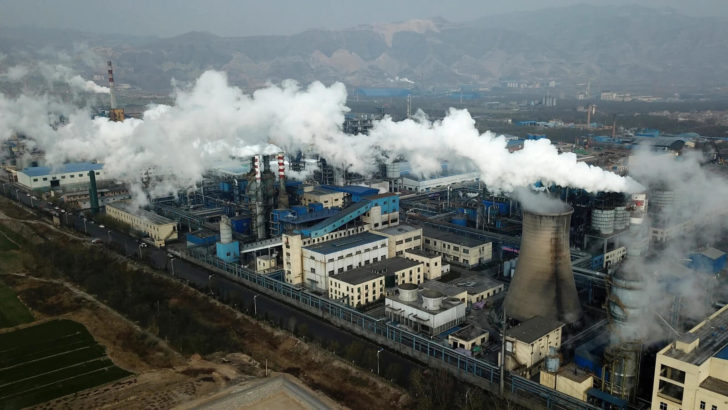Last month, China finally ended containment. Although air quality has improved considerably during this period, new data show that it was short-lived. Air pollution is even at higher levels than during the same period last year.
An edifying ratio
A report published by CREA (Centre for Energy and Clean Air Research), an independent body based in Finland, shows that air pollution has increased throughout China during the country’s deconfinement. CREA monitored particulate matter, nitrogen dioxide, sulphur dioxide and ozone between April and May. The results show that after taking into account meteorological conditions, all pollutants exceeded last year’s levels after the lifting of containment measures.

The results suggest that most of the pollution comes from coal-fired power plants. Coal is full of sulphur, so when the fossil fuel burns and is released, this sulphur interacts with the oxygen in the air and creates sulphur dioxide. The increase in sulphur dioxide points to coal-fired power plants as the culprit, a finding that is reinforced by the fact that particulate matter and nitrogen dioxide are also at their highest levels, where sulphur dioxide has peaked.
A futile effort
China appears to have experienced similar peaks, particularly after the SARS epidemic in 2003 and the global financial crisis in 2008. In both cases, the country prioritized polluting construction projects and coal combustion to boost the economy. However, both pollution peaks occurred before China’s more recent attempts to improve air quality. In particular, the country launched a « war on pollution » in 2014 to clean up its notoriously harmful air. Before the pandemic, China was already doing this.

A study conducted in 2019 revealed that six of the air quality improvement policies alone saved more than 400,000 lives in 2017. Today, China seems to be backtracking. The consequences of this pollution on public health are significant, particularly because the covid-19 crisis is not over. Indeed, Jilin province is back under control after 34 new cases and one death. Research has established links between air pollution and coronavirus mortality rates.
This reduction in air quality also indicates that China may not be taking a clean energy approach to revitalizing its economy. This is unfortunate because this pandemic is not the only crisis that is exhausting the world. Climate change is here, and it is poised to wreak havoc. It is a rare opportunity to change the world for the better. And yet, here we are, ready to ruin it all again.
